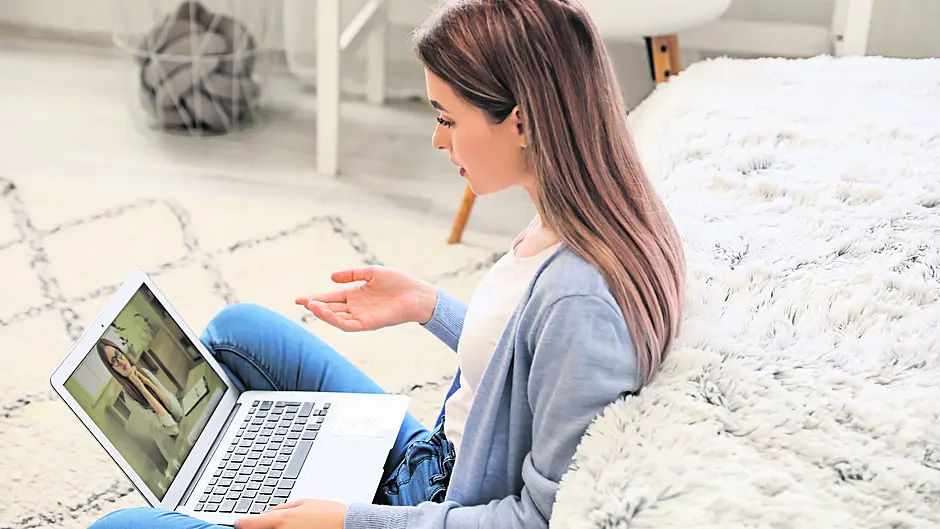By Linda Hamilton, Cognitive behavioural therapist
AT the height of the pandemic in 2020-21, some predicted that life would never be the same again – that many people would never go back to casually shaking hands, or to socialising in busy pubs, or to being in indoor areas without a mask, and so on.
In reality, life has gone back to normal in most respects, but there is one obvious exception – much of life has moved online and stayed online. This is true of work, with remote working now a fact of life. And it’s also true of psychotherapy.
Prior to the pandemic, I saw the occasional international client online, but that was it. Obviously that all changed during the pandemic, when online appointments – video-therapy – became the norm. Things changed again following the vaccine rollout, with in-person sessions resumed.
However, that didn’t mean the end of online CBT sessions – far from it. In fact, most of my clients today choose to avail of online rather than in-person sessions.
Pros
Like everything in life, online therapy has its pros and cons. The most obvious advantage is the sheer convenience and accessibility of it. As long as you have a half-decent internet connection, you can access it from anywhere in the world. Not so long ago, someone living in a rural area might have had to travel a long distance to access therapy. Now, whether you live in Dunmanus or Dublin, in Goleen or in Galway, in Fermoy or in France, online options are available to all.
Convenience may equally be a factor for people living in urban areas. Many people live busy lives. Instead of driving to a therapist’s office, the online option allows people to fit therapy into their busy schedules.
Online therapy also allows you to work with a therapist who specialises in a particular area. Different psychotherapists practice different forms of therapy – for example, cognitive behavioural therapy (CBT), psychodynamic therapy, integrative therapy, person-centred counselling, mindfulness, couples therapy, and so on.
For some people, the actual therapeutic approach used by the therapist may not be an especially important consideration. Some people might just want to talk about their problems, hopes and worries with a warm and empathetic therapist.
In other cases, there may be strong evidence that a client requires a specific therapeutic approach. Many clients I see online are trying to manage anxiety or OCD. There is a reason why people with OCD, in particular, are advised to seek out CBT. For example, the International OCD Foundation recommends CBT for OCD. So does OCD UK. So does the National Institute for Health and Care Excellence (NICE), which serves the NHS in England and Wales. Indeed, the NICE guidelines state that healthcare professionals should advise people with OCD that apart from cognitive and/or behavioural therapies, there is ‘no convincing evidence’ that other psychological treatments can help teat OCD.
By the same token, I don’t offer couples therapy because I do not have experience in this area. Again, online therapy allows people to seek out therapists that are right for them.
Cons
What about the drawbacks? Privacy might be a concern – it’s hard to talk freely if there are people in your house passing your door, so it really is vital to carve out a private space and time. Clients can be inventive in this regard when something unexpected arises – for example, having the session in their car.
Just as some people prefer working in an office as opposed to working remotely from home, some people prefer travelling to a therapist’s office, as it allows them to get out of the house and carve out some extra ‘me time’.
And some people simply prefer in-person sessions, seeing it as more personal and connected.
Still, personal preferences aside, a growing body of evidence confirms that video-therapy is clinically effective and that it does not hinder the formation of a strong therapeutic relationship.
Indeed, it’s clear there is no going back now. Like remote working, online therapy is here to stay.
Linda Hamilton is a Kinsale-based cognitive behavioural therapist.
If you would like to get in touch with her, call 086-3300807
For more information, go to www.kinsalecbt.com










